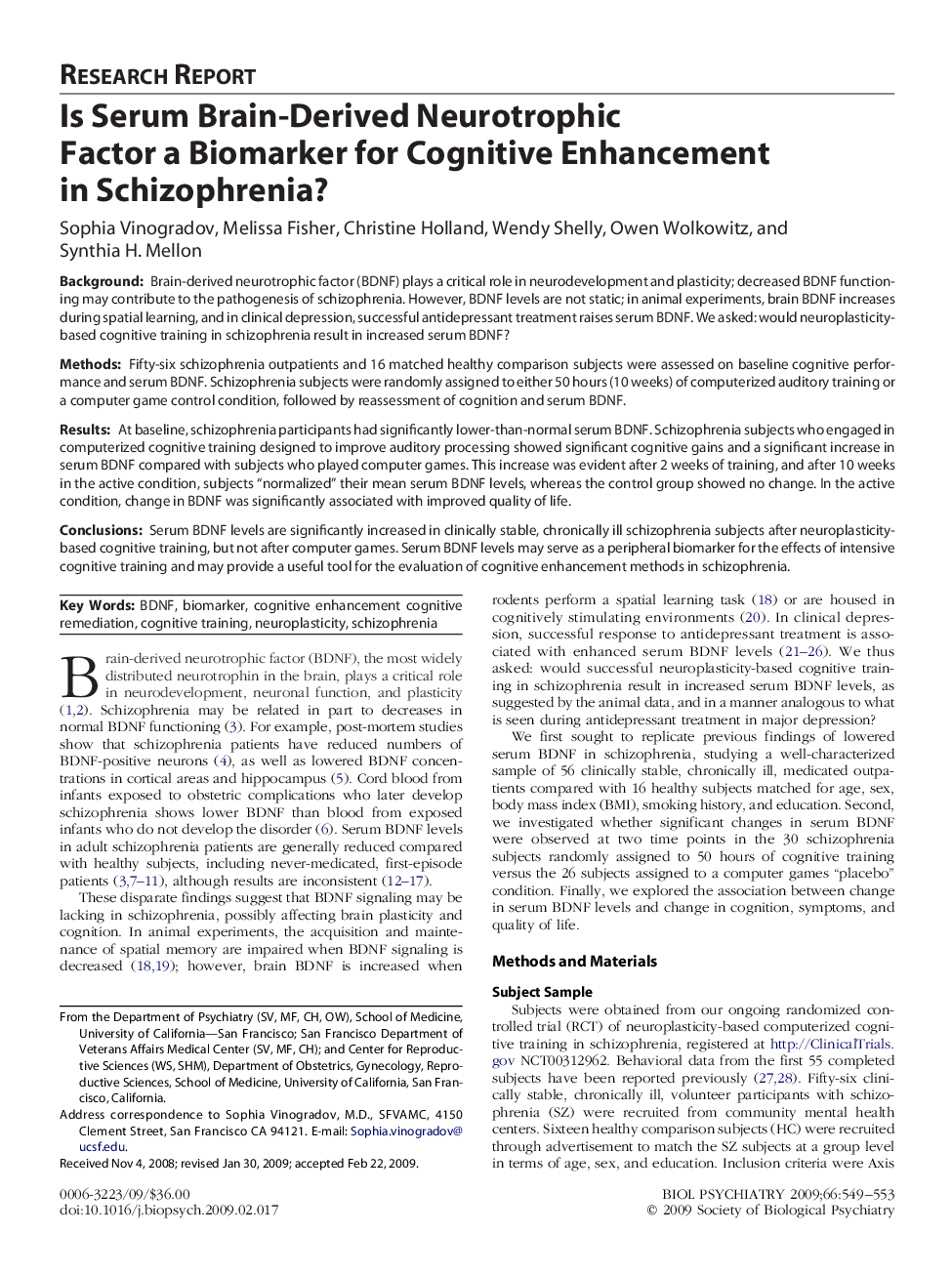| Article ID | Journal | Published Year | Pages | File Type |
|---|---|---|---|---|
| 6228716 | Biological Psychiatry | 2009 | 5 Pages |
BackgroundBrain-derived neurotrophic factor (BDNF) plays a critical role in neurodevelopment and plasticity; decreased BDNF functioning may contribute to the pathogenesis of schizophrenia. However, BDNF levels are not static; in animal experiments, brain BDNF increases during spatial learning, and in clinical depression, successful antidepressant treatment raises serum BDNF. We asked: would neuroplasticity-based cognitive training in schizophrenia result in increased serum BDNF?MethodsFifty-six schizophrenia outpatients and 16 matched healthy comparison subjects were assessed on baseline cognitive performance and serum BDNF. Schizophrenia subjects were randomly assigned to either 50 hours (10 weeks) of computerized auditory training or a computer game control condition, followed by reassessment of cognition and serum BDNF.ResultsAt baseline, schizophrenia participants had significantly lower-than-normal serum BDNF. Schizophrenia subjects who engaged in computerized cognitive training designed to improve auditory processing showed significant cognitive gains and a significant increase in serum BDNF compared with subjects who played computer games. This increase was evident after 2 weeks of training, and after 10 weeks in the active condition, subjects “normalized” their mean serum BDNF levels, whereas the control group showed no change. In the active condition, change in BDNF was significantly associated with improved quality of life.ConclusionsSerum BDNF levels are significantly increased in clinically stable, chronically ill schizophrenia subjects after neuroplasticity-based cognitive training, but not after computer games. Serum BDNF levels may serve as a peripheral biomarker for the effects of intensive cognitive training and may provide a useful tool for the evaluation of cognitive enhancement methods in schizophrenia.
